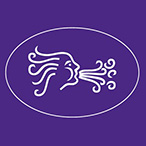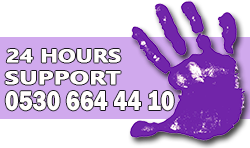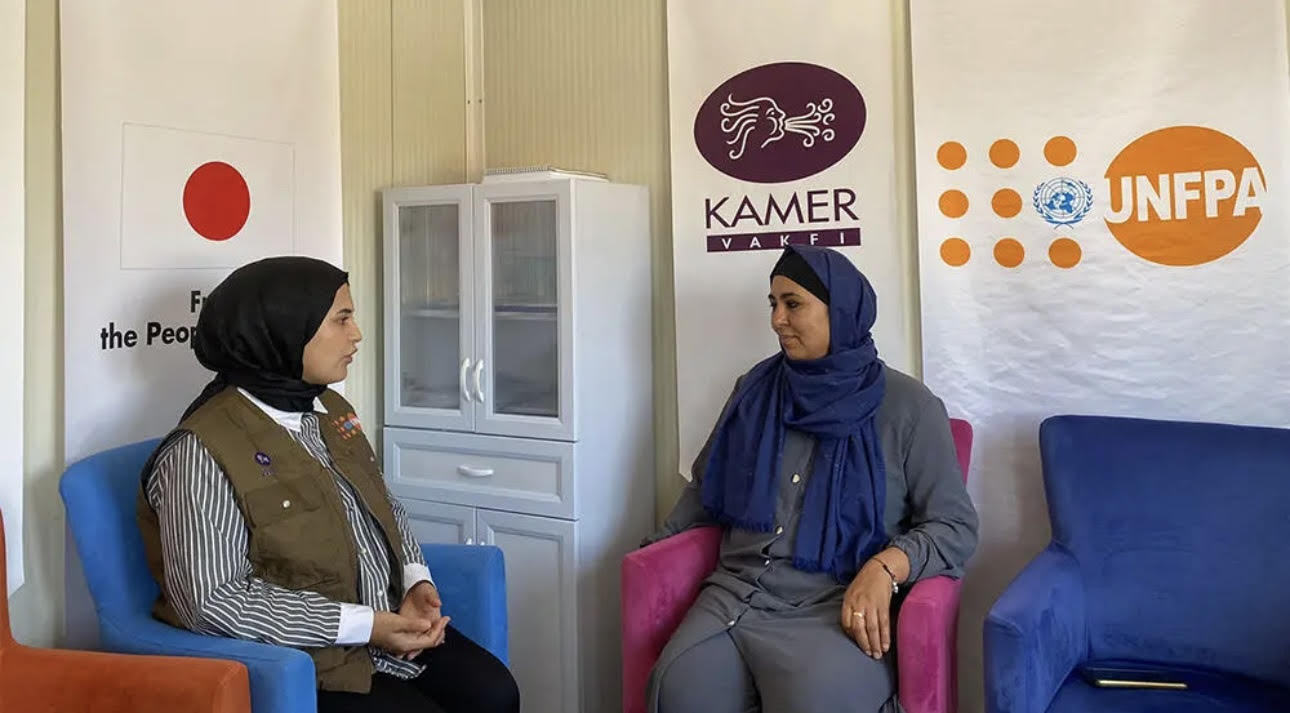UNFPA continues health and protection services for women and girls in Malatya. The earthquakes of 6 February 2023, which affected 11 provinces, disrupted the lives of millions of people in Turkey. Women and girls are more affected by the earthquake and the problems caused by the earthquake; their protection needs increase due to the difficult conditions in the region and they have difficulties in accessing reproductive health services, products and information. The United Nations Population Fund (UNFPA), in partnership with KAMER Foundation and with financial support from the Japanese Government, is working to increase access to information and services on violence against women, combating child, early and forced marriage, and reproductive health at Women's Health Counselling Centres. More from the women who continue to recover.
Malatya, Turkey - The 6 February 2023 earthquakes, which killed more than 53,000 people, directly affected the lives of more than 9 million people living in 11 provinces across Turkey. The devastating impact of the disaster on the economy, infrastructure, health and education has caused great hardship for everyone in the region. However, women and girls need more support in these difficult circumstances due to increased risks of child, early and forced marriage, violence and harassment. In Malatya, the United Nations Population Fund (UNFPA), in partnership with KAMER and with financial support from the Government of Japan, is working to address the ongoing health and protection needs of women and girls following the earthquake.
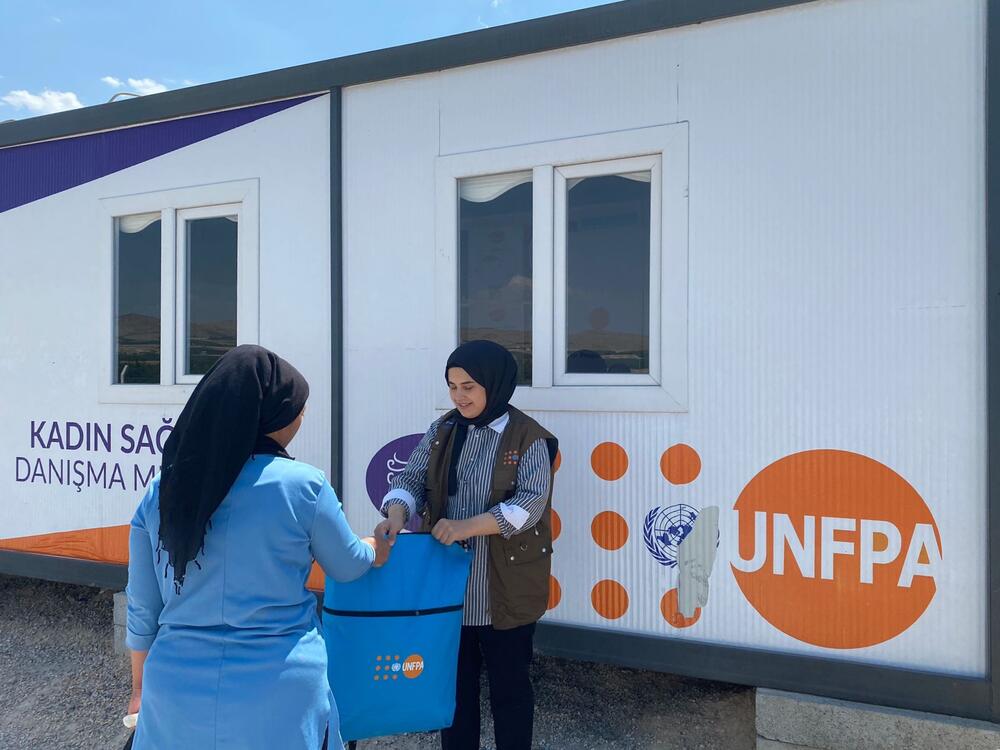 Gamze benefits from UNFPA's support with a feminine hygiene kit at the Malatya Women's Health Counselling Centre.
Gamze benefits from UNFPA's support with a feminine hygiene kit at the Malatya Women's Health Counselling Centre.
Gamze's Story
‘My children will now have a peaceful home. No one will be able to take our roof off our heads, no one will be able to say get out of this house.’ With these words, Gamze (38) tells the story of realising that she is not alone and helpless in the face of any problem in life, and that there is always a way out.
Married off at the age of 17 to a relative and subjected to violence by her husband for 22 years, she says that the only thing that changed for her and her children before and after the earthquake was the extent and frequency of the violence she experienced from her husband; ‘My husband was working, but he did not contribute anything to us. I raised my children with the support of neighbours. The day I got a job to make ends meet, my husband threw me out of the house and told me that I could never enter this house again.’
After Gamze was thrown out of the house, her children were placed in a love home because they continued to be subjected to violence by their father. The young woman applied to UNFPA and KAMER's centre to get her children out of the love home and reunite with them. With the cash support she received, she was able to rent a house and take her children with her. She hired a lawyer and filed a lawsuit to get herself and her children out of this cycle of violence.
Gamze explains the importance of the support she received: ‘This support is like moving from a dark place to the light,’ she says, ‘This support has given me great strength. This is a unique opportunity not only for me but also for the future of my children.’
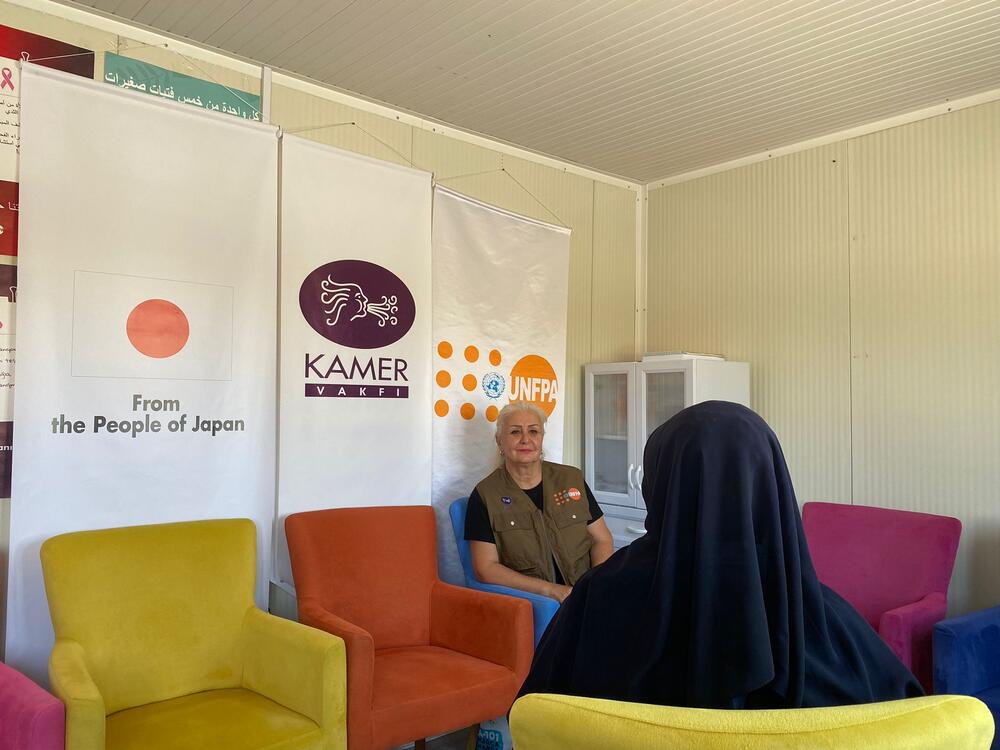 Hilal explains the needs and services they receive at the centre. ©UNFPA Turkey.
Hilal explains the needs and services they receive at the centre. ©UNFPA Turkey.
Hilal's Story
Hilal (38) has been subjected to psychological, sexual and physical violence by her husband of 16 years. ‘Once I went to the hospital to get a battering report, but I went back without going in, thinking of my children,’ she said, explaining that she was too scared to fight back.
Hilal became aware of the UNFPA-supported reproductive health centre when she went to Malatya to live with her family to get away from her husband because the violence continued after the February 6 earthquakes. On the first day she attended the meetings, she said, ‘Women were telling their problems. It was my turn, and before I could say a word, I started to cry, and then I started to talk. The more I talked, the more I felt relieved, the more I saw that they were listening to me, the more I talked, and after that I went to every meeting. I never stopped talking,’ she said.
Hilal says that she understood how widespread the violence she experienced was when she came to the centre, and thanks to the meetings, trainings, psychological support, women's hygiene kits and cash support at the centre, she was able to stand up and pay for her children's education and lawyer's fees; ‘Until I went to the first meeting at the centre, I thought that all this happened only to me in Turkey. What gave me the most strength in the face of what I went through was the existence of this centre that stands by women.’
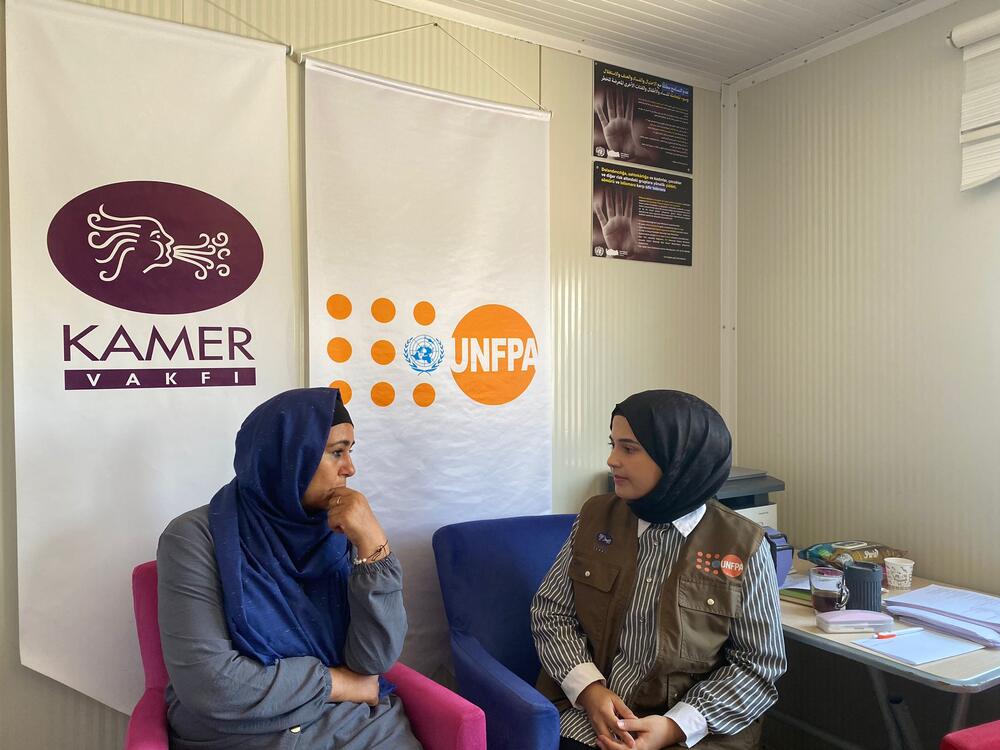 Heyfa benefits from psychosocial support provided by the Women's Health Counselling Centre in Malatya. ©UNFPA Turkey.
Heyfa benefits from psychosocial support provided by the Women's Health Counselling Centre in Malatya. ©UNFPA Turkey.
Heyfa's Story
Heyfa (43), who left her home due to the civil war in Syria and came to Turkey in 2014, describes her experiences during the 6 February earthquake by saying ‘I relived the war on the days of the earthquake’. Heyfa, who lives in a container city in Malatya with her 4 children, says that she misses silence the most.
Saying that she changed her perception that the violence she suffered from her husband was normal thanks to the trainings she received at UNFPA and KAMER's centre, she says, ‘When they asked me how I was and what my needs were as a woman, I realised that I was not alone, I felt like there was someone behind me.’
Heyfa, who received psychosocial support, cash support and family planning information and services from the centre, explains how the support she received empowered her: ‘Women can defend all their rights when they receive education and work. Therefore, such centres and services should be expanded.’
The stories of women living in Malatya shed light not only on their personal struggles but also on the common problems faced by many women living in the earthquake zone. To contribute to the solution of these problems, UNFPA continues to provide reproductive health and gender-based violence prevention and response services through Women's Health Counselling Centres with the financial support of the Japanese Government and in cooperation with KAMER Foundation.
UNFPA, with the support of its partners and donors, has been in the field since the first day of the disaster and has been determinedly continuing its struggle for the elimination of all forms of violence against women, increased access to health services, empowerment and equal rights of women.
